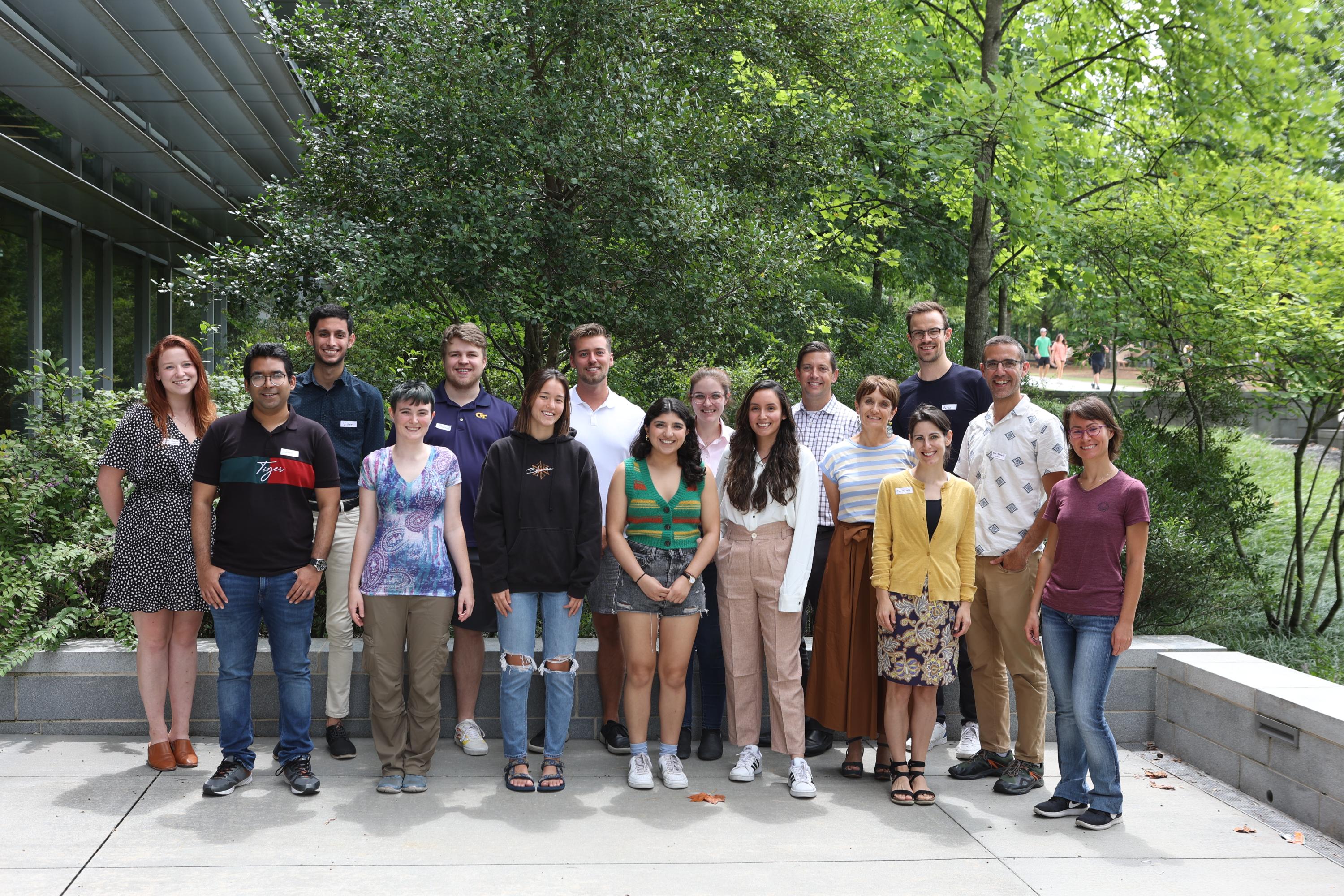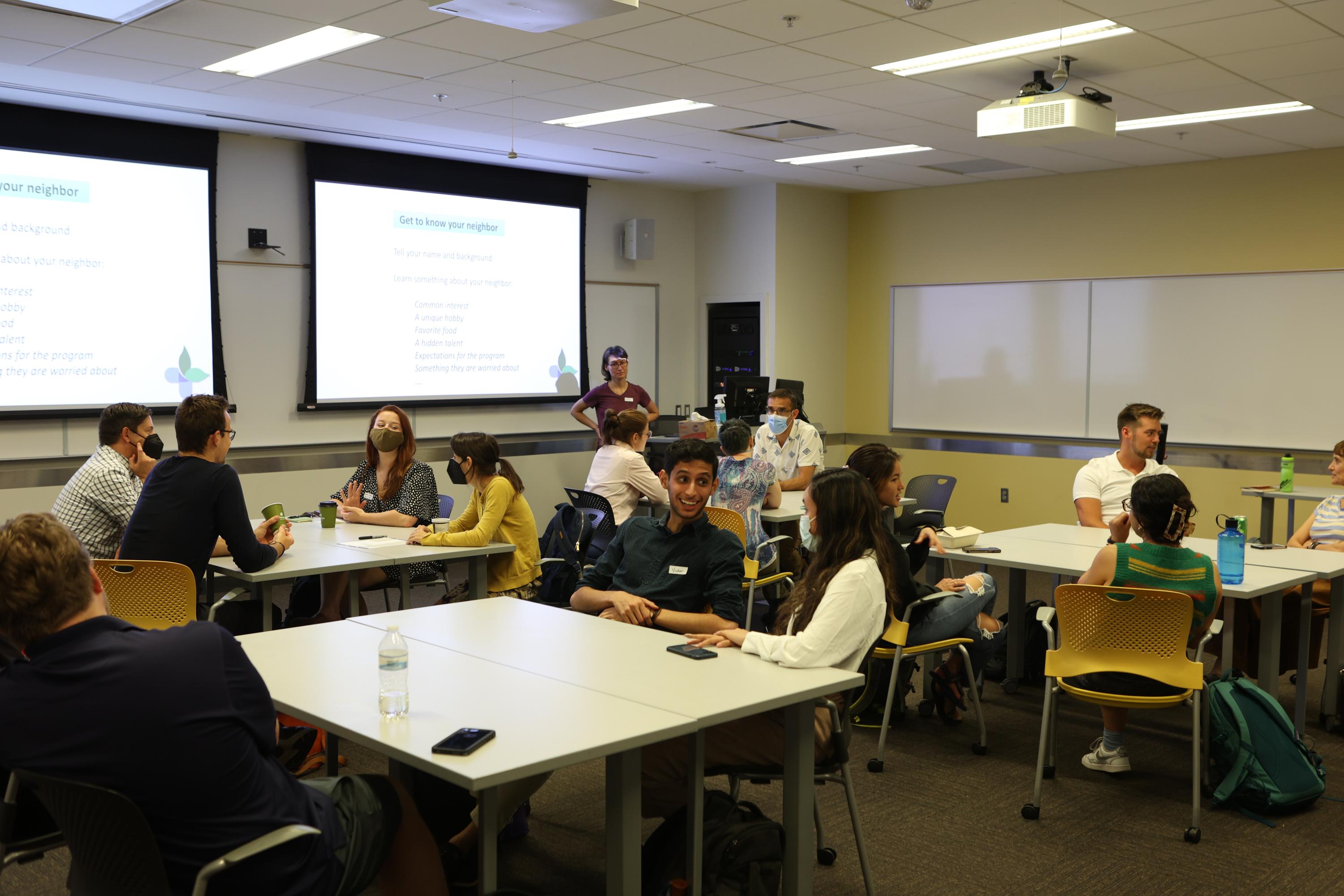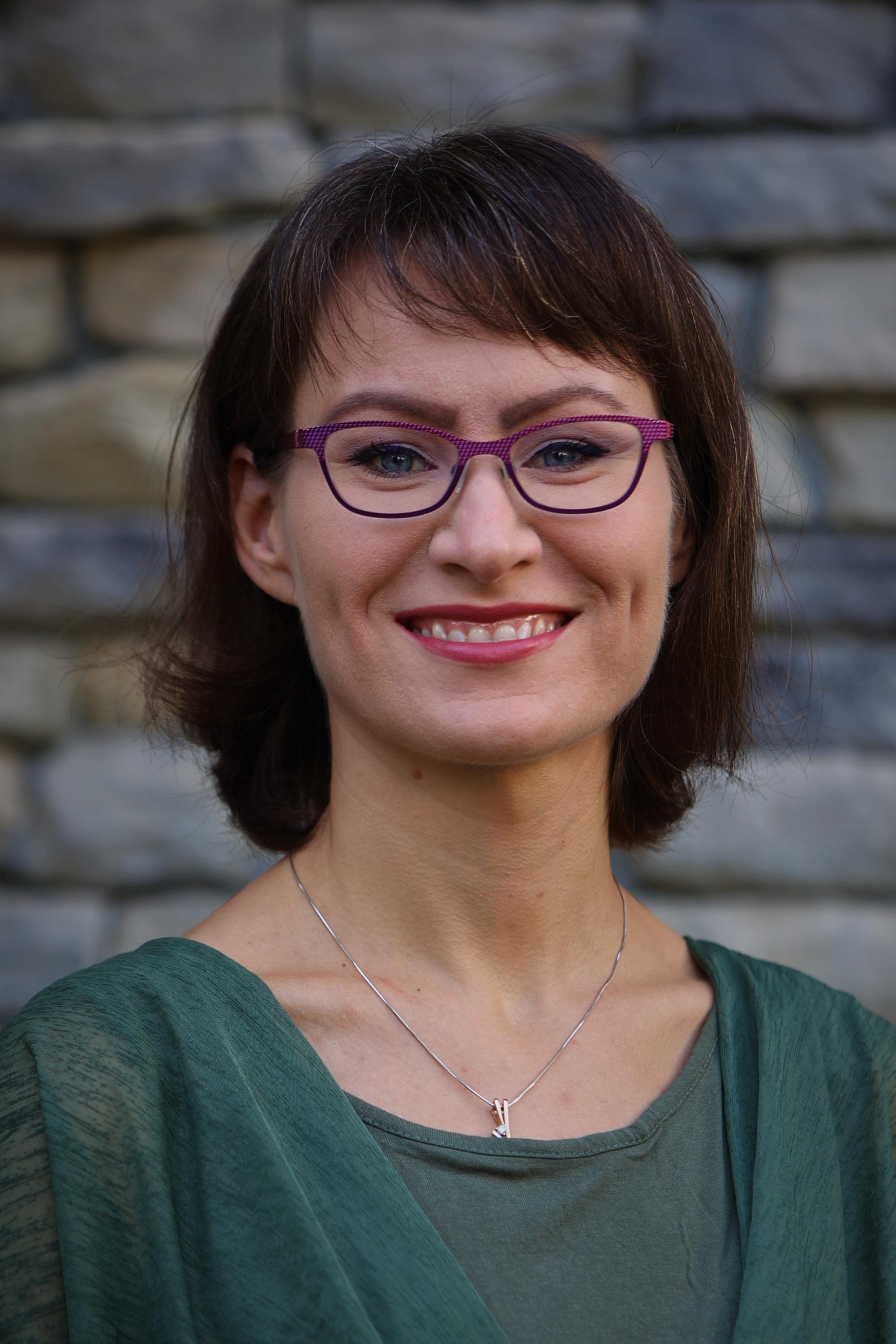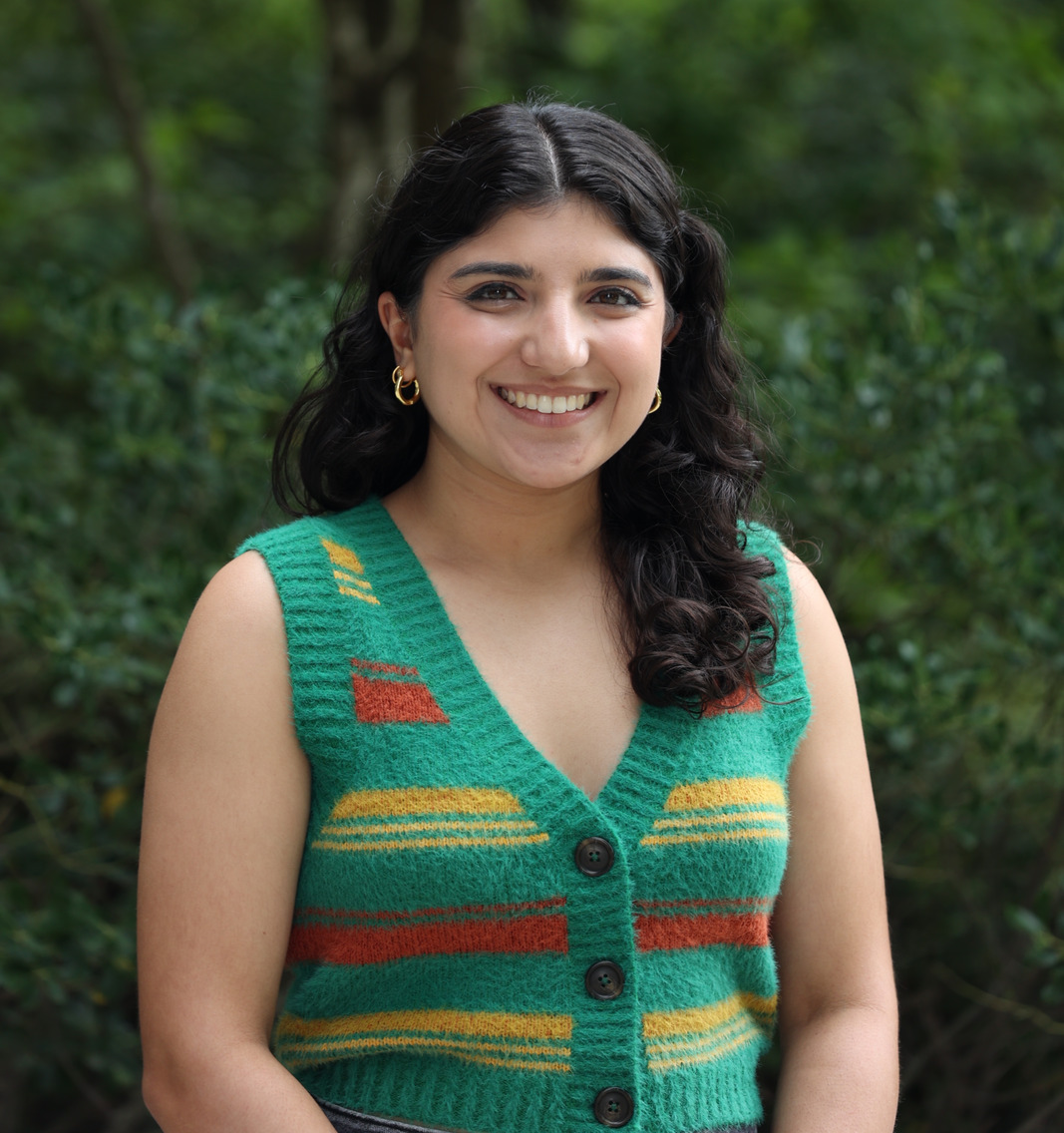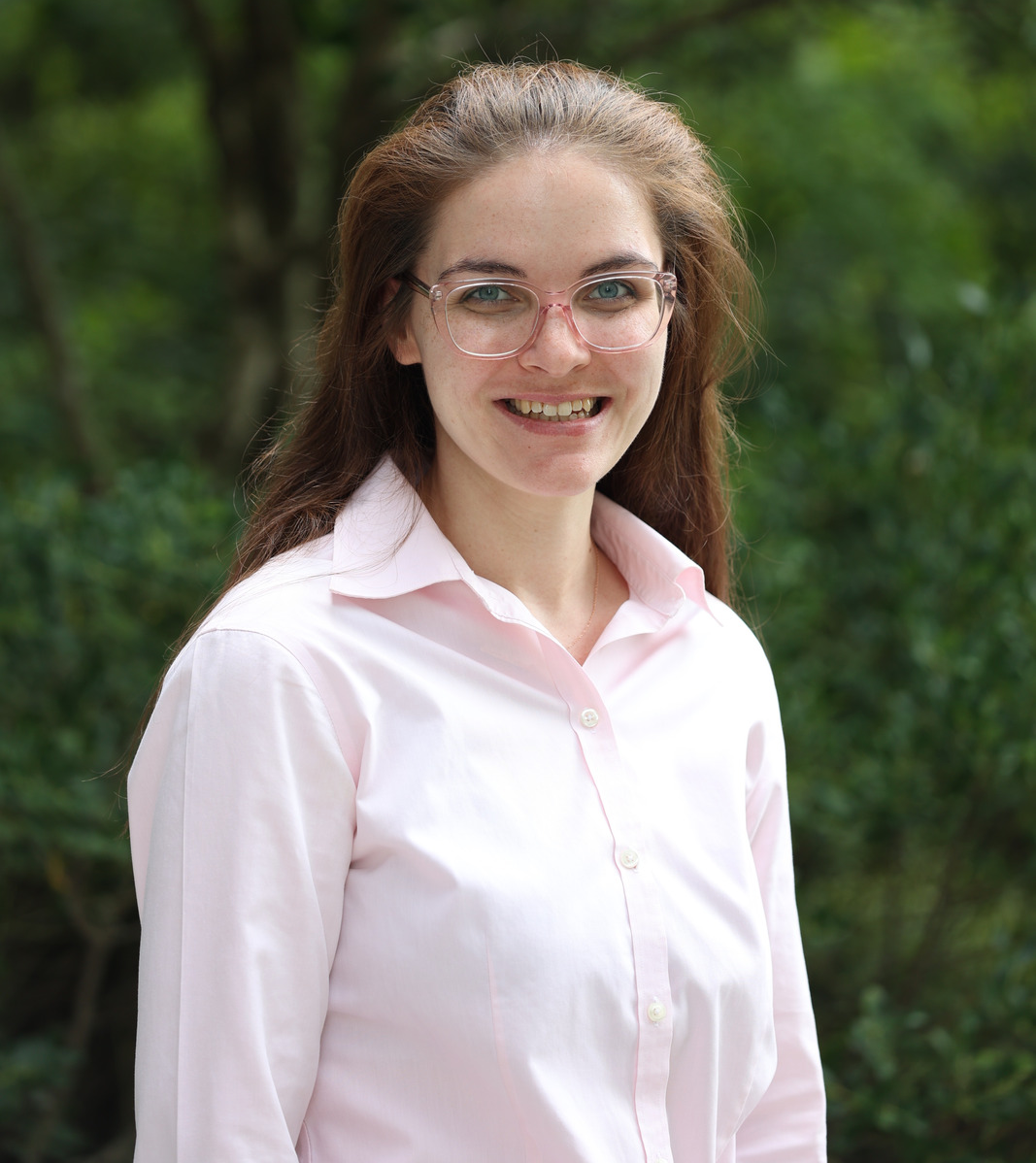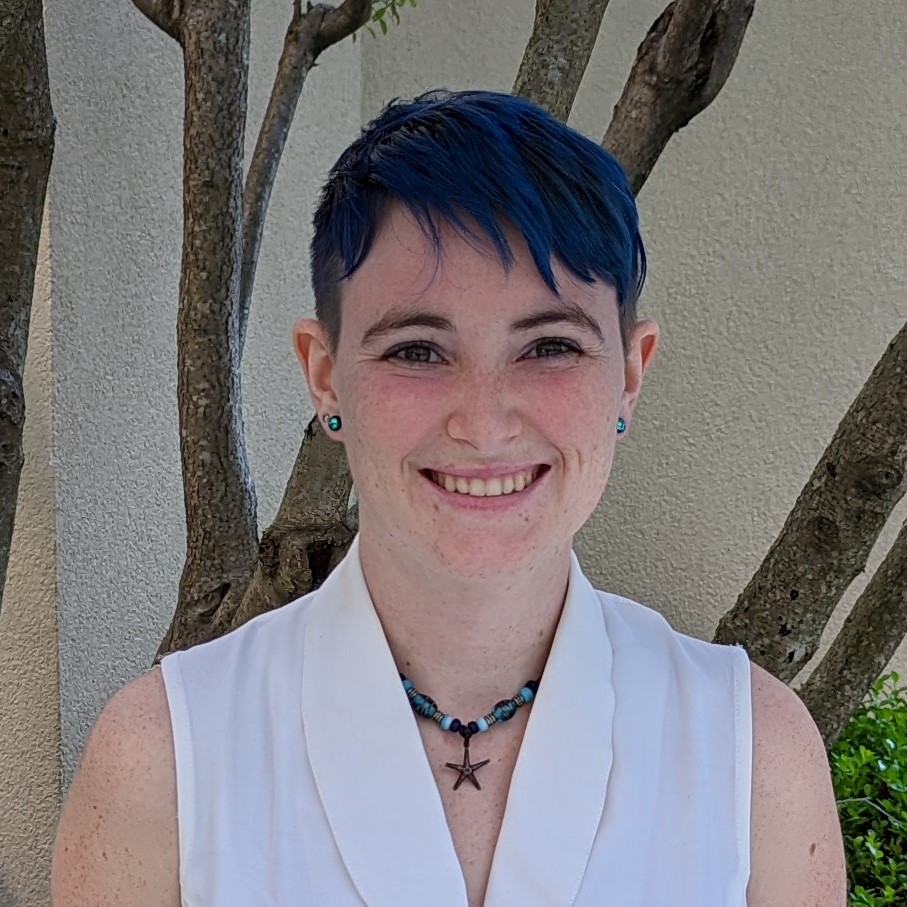A new Georgia Tech program has launched to support the next generation of leaders who can take their scientific discoveries and translate them into public action to improve human and environmental health.
The Interdisciplinary Health and Environment Leadership Development (IHE-LeaD) Program at Georgia Tech recently welcomed its inaugural cohort of 11 graduate student fellows from the College of Sciences, the College of Engineering, and the Ivan Allen College of Liberal Arts. The IHE-Lead program is supported by a grant from The Burroughs Wellcome Fund, a non-profit medical research organization supporting biomedical science and STEM education.
The goal of the IHE-LeaD Program
Human and environmental health are intertwined. Early career researchers are acutely aware of ways in which their research has a chance to make a difference, but doing so requires collaboration across disciplinary boundaries and with community stakeholders.
“The IHE-LeaD program is designed to decrease the barriers to the translation of science for the public good”, said Joshua Weitz, professor and Tom and Marie Patton Chair in the School of Biological Sciences and the IHE-LeaD Program’s co-principal investigator. “The leadership program is intended to be a critical first step towards building an integrative research and training environment at Georgia Tech that can address some of our most challenging problems, whether in the areas of health disparities, emerging infectious disease, air quality, climate change and beyond.”
Fellows were selected based on their interest for interdisciplinary exchange and their innovative ideas for collaborative, public facing actions that advance human and environmental health. Six faculty advisers will support the researchers with the goal of turning their scientific discoveries into applications that directly benefit communities.
“For me, the responsibility of the scientific enterprise is first and foremost to be of public service for the greater good,” said Gabi Steinbach, scientific project coordinator and data communications specialist in the Weitz Group in the School of Biological Sciences, and the IHE-LeaD Program’s principal investigator. “The fellowship program captures two aspects that directly address this goal. One is the topical focus on interconnected human and environmental health, and the other is the impact-driven nature of the program.”
What to expect in the IHE-LeaD Program
Between August 2022 and May 2023, fellows will receive training in leadership and translational development. Workshops range from team dynamics to community engagement and system thinking, led by local, national, and Georgia Tech experts. The program also features a monthly seminar series with speakers from across the Institute’s colleges. That series will be open “to allow colleagues, partners, and the public to engage with our growing community,” Steinbach said.
During the program, IHE-LeaD fellows will jointly plan and implement activities based on their shared goals related to human and environmental health, which may include collaborative research, outreach events, and the development of online platforms.
The Burroughs Wellcome Fund support will also enable a two-day symposium, planned for early summer 2023. Fellows will invite and engage with regional and national academic experts, trainees, community leaders, and policy makers in their field of interest. That will give them a chance to establish professional networks, develop skills for implementing science-informed actions, and be directly involved in shaping a collaborative, interdisciplinary community.
The inspiration for IHE-LeaD
Steinbach said it is becoming increasingly obvious that human prosperity cannot be addressed effectively without considering environmental aspects such as climate change and air quality. “To reach those goals, it is crucial to focus on the interconnectedness of human health and environmental systems.” The IHE-LeaD program is built around that focus, bringing together experts at Georgia Tech who work at the forefront of advancing and protecting health from different human and environmental aspects.
“While innovative scientific progress is a necessary condition for progress, it does not readily translate into societal impact,” she said. “Established academic training focuses on scientific practice, often separated by disciplines, but can too commonly feel isolated from real-world scenarios. This absence of connection can leave individual trainees and researchers feeling disempowered, and too often disappointed.”
Steinbach and the other IHE-LeaD Fellows believe “the scientific voice” is a crucial component in tackling real-world problems. “With our program, we aim to bridge that gap and provide students with the training and opportunity to connect their passion for science with their desire to contribute to effective impact.”
Interdisciplinary connections
Steinbach said with her background in physical and biological sciences, it has always been her goal to bridge disciplinary boundaries and connect with social scientists and experts from other fields. “This enables me to see my disciplinary blind spot and to jointly work towards truly effective and sustainable innovations,” she said.
For Sonja Brankovic, Ph.D. candidate in the Woodruff School of Mechanical Engineering, it’s the translational aspects of the program that got her attention. “ I’m interested in going into industry. I think it’s just a natural fit to learn more about that — how what I study can be more impactful. So this is something I’m really interested in.”
Nidhi Desai, Ph.D. candidate in the School of Earth and Atmospheric Sciences explained her interest. “As an air quality instrumentalist, I feel like we talk a lot about the science, but not about the human health effects as much. So I’m really interested in learning as much as I can from this program and thinking about that more.”
Becoming an IHE-LeaD Fellow proved to be a case of perfect timing for Stephanie Bilodeau, Ph.D. candidate in the School of Biological Sciences. “I’ve just started doing local research on freshwater ecosystems in Georgia. So for the first time, I’m doing research that actually has applications for the community around Atlanta. This opportunity is ideal to help me build my skills and learn to connect my research better to the Georgia Tech community and Atlanta.”
Steinbach, IHE-LeaD’s principal investigator, hopes the initiative becomes an annual program. “We hope that the first cohort fellows will become mentors for following cohorts, and that we can grow a sustainable interdisciplinary network which facilitates public-facing impact and helps fellows develop interdisciplinary and dynamic careers.”
Learn more about the Interdisciplinary Health and Environment Leadership Program (IHE-LeaD) at Georgia Tech.
By: Renay San Miguel
Interviews: Audra Davidson
For More Information Contact
Renay San Miguel
Communications Officer II/Science Writer
College of Sciences
404-894-5209
Editor: Jess Hunt-Ralston

